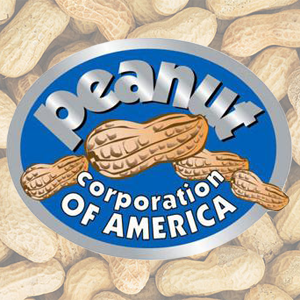 Federal Judge W. Louis Sands handed out the most severe sentence ever in relation to an outbreak of foodborne illness on Monday when he sentenced former CEO of the now-defunct Peanut Corporation of America (“Peanut Corp.”), Stewart Parnell, to 28 years in prison for his role in a 2009 outbreak of salmonella that sickened over 700 people and contributed to nine deaths.
Federal Judge W. Louis Sands handed out the most severe sentence ever in relation to an outbreak of foodborne illness on Monday when he sentenced former CEO of the now-defunct Peanut Corporation of America (“Peanut Corp.”), Stewart Parnell, to 28 years in prison for his role in a 2009 outbreak of salmonella that sickened over 700 people and contributed to nine deaths.
In February 2013, Parnell was indicted on 76 counts, including conspiracy, obstruction of justice, various types of fraud, and introduction of adulterated and misbranded food into interstate commerce with the intent to defraud or mislead following an outbreak of salmonella in 2009 that was traced back to peanut butter products manufactured in a Peanut Corp. plant. At the beginning of the 2009 outbreak, Food and Drug Administration inspectors found a myriad of sanitary violations at the Peanut Corp. plant in Georgia that produced peanut butter and paste to be used by manufacturers around the country, including “mold, roaches, dirty equipment, holes big enough to allow rodents inside and a failure to separate raw and cooked products.” The controversy grew when investigators discovered that executives allegedly falsified certificates of analysis ensuring that shipments were free of pathogens when the products had actually tested positive for salmonella or not been tested at all. Court documents revealed further wrongdoing on the part of Parnell and his colleagues through internal emails that appeared to show Parnell knowingly instructing employees to ship tainted batches of products in order to avoid losing “another customer.”
After a years-long investigation and federal prosecution that culminated in a seven-week trial in 2014, 61-year old Parnell is the “first food executive to be the subject of a federal felony conviction in connection with an outbreak.” Michael Parnell, a food broker for Peanut Corp. and Parnell’s brother, and Mary Wilkerson, a quality-control manager at the company, were convicted on fewer counts and sentenced to lesser terms in prison. Lawyers for all three say they are planning to appeal.
The 2009 outbreak resulted in one of the largest recalls in U.S. history, and “helped fuel a push by the Obama administration for the first overhaul of the nation’s food-safety system in generations,” leading to a great increase in prosecution of similar offenses. Bill Marler, one of the most prominent food-safety lawyers in the country and counsel to some of the victims in this matter, told the Washington Post that the past five years have produced as many criminal prosecutions as he saw in the first 20 years of his practice. Following Parnell’s conviction, food safety advocates and food company executives alike will surely be eager to see whether federal prosecutors will continue to pursue harsh sentences or bring lesser charges, or none at all, against offending companies in the future.
